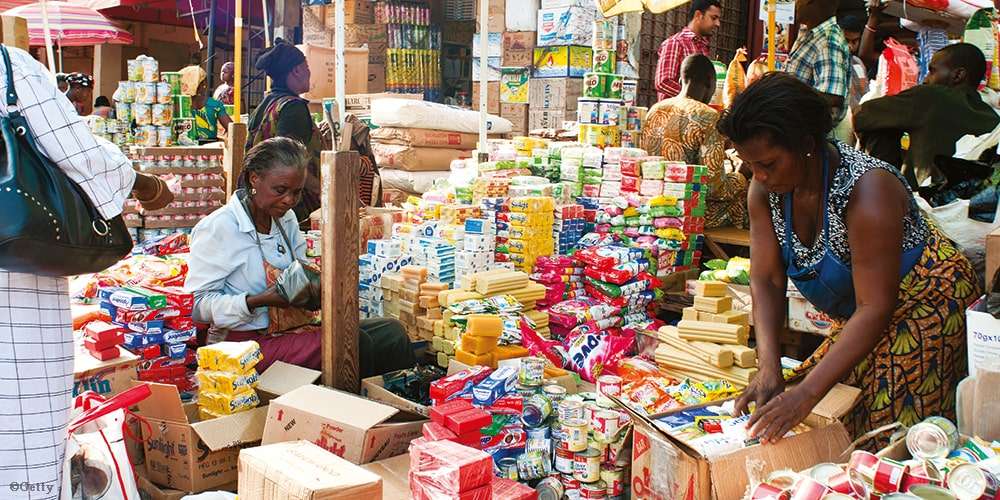The push for a dedicated Women’s Bank in Ghana is gaining traction, with governance and financial experts advocating for a structured approach to empower women entrepreneurs.
Prof. Henry Kwasi Prempeh, Executive Director of CDD-Ghana, has strongly endorsed the idea, emphasizing that the rationale for such an institution is both clear and compelling.
He argued that the current framework for financing women-led enterprises, particularly through the Microfinance and Small Loans Centre (MASLOC), has failed to deliver its intended impact.
“The case for a Women’s Bank is easily made. We must consider phasing out MASLOC and rolling it into the Women’s Bank–for proper regulatory oversight and accountability, among others. And get Development Bank Ghana (DBG)back on mission, or else repurpose it as the Women’s Bank!”
Prof. Henry Kwasi Prempeh
Prof. Prempeh further indicated that women form the backbone of Africa’s economy, accounting for 58 percent of the self-employed population and contributing a significant 13 percent to the continent’s GDP.

Their entrepreneurial drive, according to him, is unmatched, with Sub-Saharan Africa having one of the highest female entrepreneurship rates in the world—26 percent of women are actively engaged in business.
Globally, one in six women aspire to start a business, but in Africa, that number jumps to one in three.
Prof. Prempeh lamented that despite their immense contributions, women entrepreneurs continue to be sidelined in financial markets.
He pointed out that women reinvest as much as 90 percent of their income into their families and communities—supporting education, healthcare, and nutrition—compared to just 40 percent reinvestment by their male counterparts.
He noted disappointedly, however, that women remain overlooked or perceived as high-risk borrowers. This systemic bias has left a glaring $42 billion funding gap for women entrepreneurs across the continent.
Bridging the Funding Gap Stresses Need for Women’s Bank
Furthermore, the financial exclusion of women entrepreneurs is a critical challenge that must be addressed to unlock Africa’s economic potential.
According to the World Economic Forum, bridging this financing gap could inject $316 billion into Africa’s economy, significantly accelerating growth and job creation.
Gender parity in access to capital, private equity, and other financial services will not only foster inclusivity but also ensure sustainable economic development.

Accordingly, Prof. Henry Kwasi Prempeh emphasized that a Women’s Bank would provide targeted financial products tailored to the unique needs of women-led businesses. “Africa needs all entrepreneurs to reach its economic potential”.
Unlike traditional banks, which often have stringent requirements that exclude many women, a specialized institution would offer flexible lending terms, lower collateral demands, and capacity-building programs to enhance financial literacy and business management skills.
Such an institution, Prof. Prempeh asserted, would also foster networking opportunities, mentorship programs, and grant funding to support female entrepreneurs beyond just financial loans.
As Ghana looks toward economic recovery and transformation, investing in women-led businesses should not be an afterthought but a deliberate policy direction.
By repurposing existing financial structures such as MASLOC and DBG, Ghana can lead the way in demonstrating how targeted financial inclusion can reshape an economy.
The benefits of such an initiative extend beyond individual women entrepreneurs. Empowering women in business means stronger families, healthier communities, and a more resilient economy.
Studies have shown that when women succeed financially, poverty rates decline, child education improves, and overall national development accelerates.
Moreover, Prof. Prempeh stressed that establishing a Women’s Bank could serve as a model for other African nations, proving that inclusive economic policies lead to sustainable growth.
He advised that policymakers must recognize that economic growth cannot be truly inclusive unless the women who drive Africa’s informal and formal economies are given the resources they need to thrive.
The time for change is now and the incumbent NDC-Mahama-led administration must fulfill its campaign promise of establishing a Women’s Bank.
A Women’s Bank is not just an option—it is a necessity, and the sooner action is taken, the sooner Ghana can unlock its full economic potential.
READ ALSO: Labour’s Workers’ Rights Plan Gains Widespread Support





















